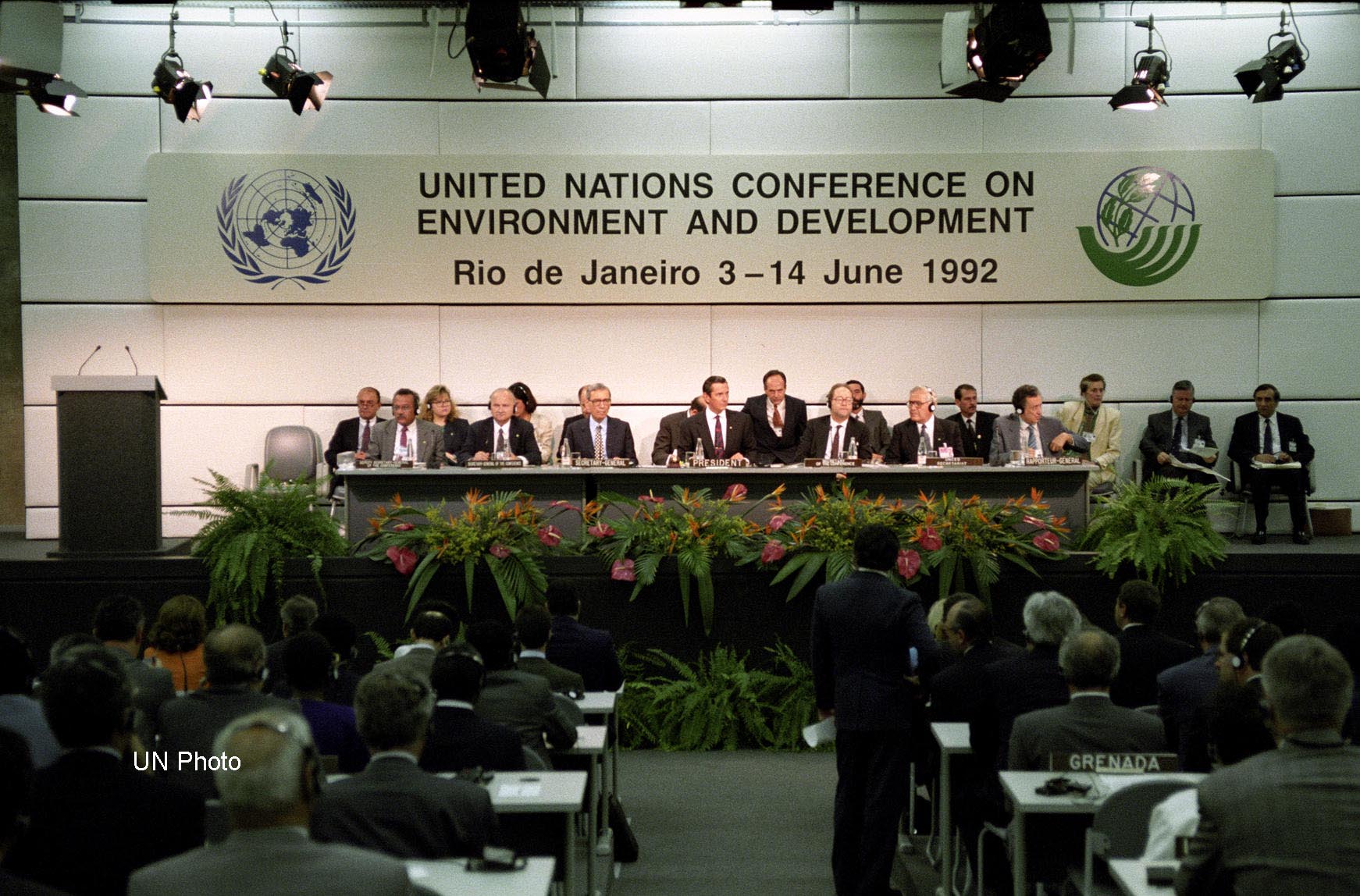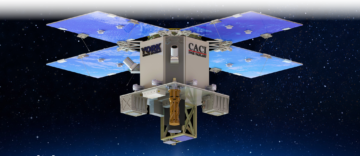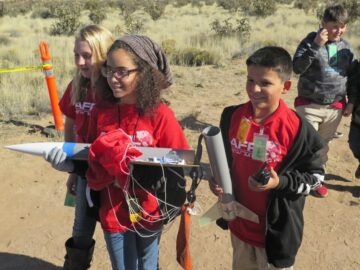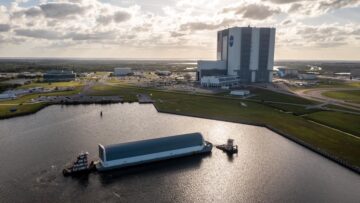
Outer space issues have never been comprehensively addressed at a global high political level, and 2024 is an excellent year to commit to that goal. Three prior global UNISpace conferences (in 1968, 1982 and 1999) achieved clear multilateral diplomatic progress and shaped key future discussions on how to use space peacefully and to the benefit of humanity. Since then, scientists and individual governments have played an indispensable role in fostering safe, sustainable space activities, providing a solid shared foundation for global political progress at the highest level. Now the stage is set.
This absence to date of a major, global high-level discussion on space is unfortunate. Military, civilian and commercial actions are surging ahead in cislunar space and on the moon’s surface. And despite the work that’s been done at the U.N. level, there is a clear lack of progress at national levels, for example, on orbital congestion, orbital debris, and the mounting competition in the orbital cislunar environment.
At the moment, even with history staring us in the eye, we seem to be careening towards intensified competition and even conflict in space. The world risks repeating what happened to humankind five centuries ago when unbridled competition for new territory and resources produced a skein of wars and economic turmoil. The purpose of existing international space law is to prevent that bloody history from repeating itself in space. That body of work is powerful but leaves unresolved a spectrum of problems arising from new kinds of space activities as well as the proliferation of new governmental and non-governmental space actors.
Within the current configuration of knowledge and urgency, the United States can play a key role in creating a framework for progress. The nation’s success with the Artemis Accords and its major share of current space activity solidify its role as a leader in the peaceful use and exploration of outer space — and as a norm-building power in this new domain. These actions also should encourage all nations, including a growing number of middle space powers, to join a conversation that already has a global reach.
Outer space activity is skyrocketing. By mid-2023, The Space Foundation calculated that the global space economy grew to $546 billion, 8% over the same point in 2022, with commercial space products and services, infrastructure and support industries amounting to a combined total of $428 billion. These developments provide great benefits now and promise further benefits in civil and military domains that will affect both Earth and space.
With U.S. leadership, a Space Summit should be modeled after the Earth Summit of 1992, which established an international framework (UNFCCC) on climate control. For space, just as for climate control, the problem is too complicated for individual states to manage, and thus a summit provides a setting for all concerned member states to engage. The goal would be to take concrete steps toward adopting a draft convention to clarify standards for safe, sustainable operations in space.
China and Russia’s major roles in space must be acknowledged, and, as diplomats know, that is where diplomacy begins its work. Without nationalizing every issue, the common stakes of avoiding war and fostering safe development are evident to all. Managed competition makes progress possible; unrestrained competition may ultimately harm every nation active in or concerned with space.
These are clearly issues that already concern the United Nations. Paragraphs 145 to 148 of the draft text for the U.N. Summit of the Future in September 2024 outline urgent issues for space. Importantly, the paper links the U.N. sustainable development goals on Earth to the safe development of space, and identifies several key challenges to address including dealing with the thousands of objects in lower Earth orbit, space traffic management, space resources activities, data diplomacy and exploitation of the moon and other celestial bodies. We should add the issues of lunar orbit management, developing multiple space stations, establishing lunar bases, the need for wider public awareness of technologies addressing climate change, medicine and other societal challenges, the need for a much larger qualified space workforce and management of military security risks. Values-based issues like night sky pollution prevention and respecting cultural heritage also warrant greater concern.
Dealing with space is a dynamic exercise requiring regularly recurring global high-level meetings. The international community, with full U.S. participation, now should establish a framework to agree on improvements to the management of space. No one pretends that this will come quickly, and no one can pretend that doing nothing will help.
If the U.S. wants to help agree and then manage the space issues, we must play a major role in negotiation and implantation. The U.S. — and the world — now has a unique opportunity to launch a major initiative for a safer Earth and a safer space. Let’s take it.
W. Robert Pearson is a senior fellow with the Rethinking Diplomacy Program and Space Diplomacy Lab at Duke University, former U.S. ambassador to Turkey and former director general of the Foreign Service.
- SEO Powered Content & PR Distribution. Get Amplified Today.
- PlatoData.Network Vertical Generative Ai. Empower Yourself. Access Here.
- PlatoAiStream. Web3 Intelligence. Knowledge Amplified. Access Here.
- PlatoESG. Carbon, CleanTech, Energy, Environment, Solar, Waste Management. Access Here.
- PlatoHealth. Biotech and Clinical Trials Intelligence. Access Here.
- Source: https://spacenews.com/outer-space-needs-a-high-level-political-summit/
- :has
- :is
- :where
- 145
- 1999
- 2022
- 2024
- a
- absence
- achieved
- acknowledged
- actions
- active
- activities
- activity
- actors
- add
- address
- addressed
- addressing
- Adopting
- affect
- After
- ago
- agree
- ahead
- All
- already
- also
- Ambassador
- an
- and
- ARE
- arising
- Artemis
- AS
- At
- avoiding
- awareness
- BE
- been
- begins
- benefit
- benefits
- Billion
- Bloody
- bodies
- body
- both
- but
- by
- CAN
- centuries
- challenges
- change
- civil
- civilian
- clear
- clearly
- Climate
- Climate change
- combined
- come
- commercial
- commit
- Common
- community
- competition
- complicated
- Concern
- concerned
- concrete
- Configuration
- conflict
- congestion
- control
- Convention
- Conversation
- Creating
- cultural
- Current
- data
- Date
- dealing
- Despite
- developing
- Development
- developments
- Diplomacy
- diplomatic
- diplomats
- Director
- discussion
- discussions
- doing
- domain
- domains
- done
- draft
- Duke
- duke university
- dynamic
- earth
- Economic
- economy
- economy grew
- encourage
- engage
- Environment
- establish
- established
- establishing
- Even
- Every
- evident
- example
- excellent
- Exercise
- existing
- exploitation
- exploration
- eye
- fellow
- five
- For
- foreign
- Former
- fostering
- Foundation
- Framework
- from
- full
- further
- future
- General
- Global
- goal
- governmental
- Governments
- great
- greater
- grew
- Growing
- happened
- harm
- Have
- help
- heritage
- High
- high-level
- highest
- history
- How
- How To
- HTML
- HTTPS
- Humanity
- identifies
- if
- importantly
- improvements
- in
- Including
- indispensable
- individual
- industries
- Infrastructure
- Initiative
- intensified
- International
- issue
- issues
- IT
- ITS
- itself
- join
- jpg
- just
- Key
- kinds
- Know
- knowledge
- lab
- Lack
- larger
- launch
- Law
- leader
- Leadership
- leaves
- Level
- levels
- like
- links
- lower
- Lunar
- major
- MAKES
- manage
- managed
- management
- May..
- medicine
- meetings
- member
- Middle
- Military
- moment
- Moon
- much
- multilateral
- multiple
- must
- nation
- National
- Nations
- Need
- needs
- negotiation
- never
- New
- night
- no
- nothing
- now
- number
- objects
- of
- on
- ONE
- Operations
- Opportunity
- or
- Orbit
- Other
- outer space
- outline
- over
- Paper
- participation
- pearson
- plato
- Plato Data Intelligence
- PlatoData
- Play
- played
- Point
- political
- Pollution
- possible
- power
- powerful
- powers
- prevent
- Prevention
- Prior
- Problem
- problems
- Produced
- Products
- Products and Services
- Program
- Progress
- proliferation
- promise
- provide
- provides
- providing
- public
- purpose
- quickly
- reach
- recurring
- regularly
- Resources
- respecting
- risks
- ROBERT
- Role
- roles
- s
- safe
- safer
- same
- scientists
- security
- security risks
- seem
- senior
- September
- service
- Services
- set
- setting
- several
- shaped
- Share
- shared
- should
- since
- sky
- societal
- solid
- solidify
- Space
- Spectrum
- Stage
- stakes
- standards
- States
- Stations
- Steps
- success
- Summit
- support
- Surface
- surging
- sustainable
- Sustainable Development
- Take
- Technologies
- territory
- that
- The
- The Future
- the world
- then
- There.
- These
- this
- thousands
- three
- Thus
- to
- too
- Total
- toward
- towards
- traffic
- Turkey
- u.s.
- U.S. Ambassador
- Ultimately
- UN
- unfortunate
- unique
- United
- united nations
- United States
- university
- urgency
- urgent
- us
- use
- wants
- war
- Warrant
- we
- WELL
- What
- when
- which
- wider
- will
- with
- without
- Work
- world
- would
- year
- zephyrnet









